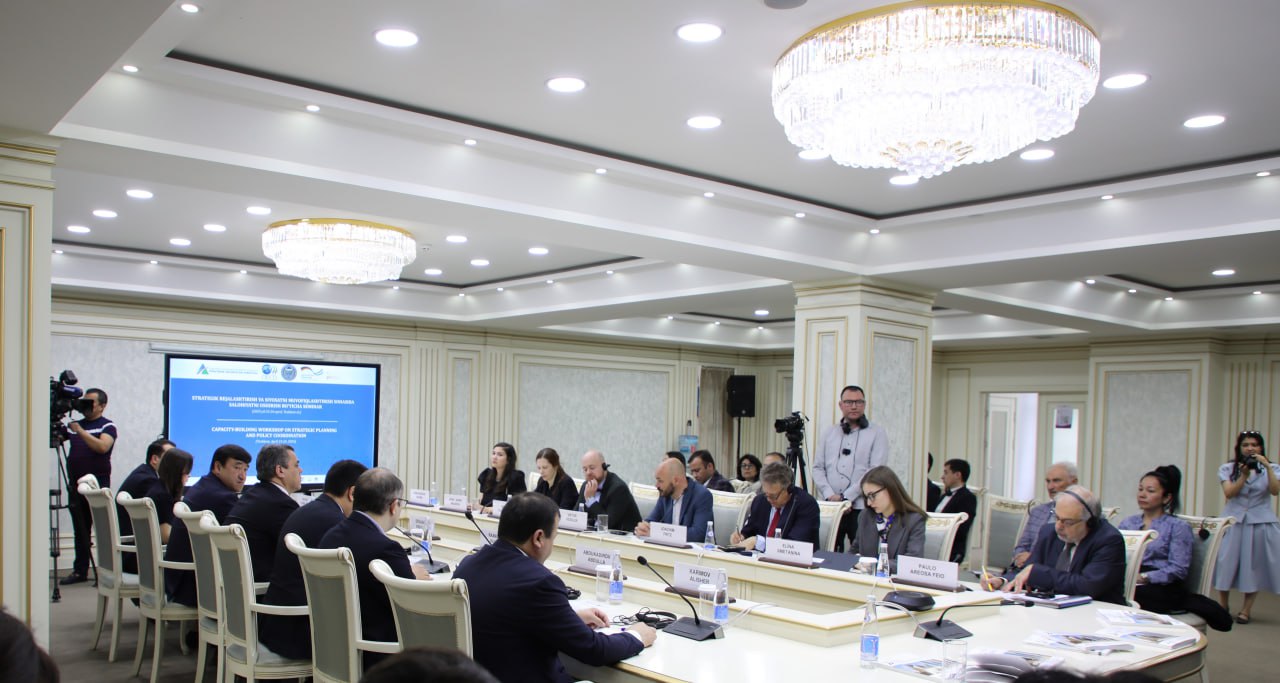Today, a seminar on capacity building in the field of strategic planning was held in Tashkent. The event was organized by the Agency for Strategic Reforms, the Institute of Legislation and Legal Policy, in cooperation with the Organisation for Economic Co-operation and Development (OECD) and the German Agency for International Cooperation (GIZ).
The seminar was attended by Bahodir Rakhmatov, Director of the Agency for Strategic Reforms; Vosidjon Ergashev, Deputy Director of the Institute of Legislation and Legal Policy; Alisher Karimov, Deputy Minister of Justice of the Republic of Uzbekistan; Joachim Fritz, GIZ Country Director in Uzbekistan; Simon Kallevaert, Policy Analyst at the OECD, as well as representatives of international organizations and relevant ministries.
The seminar marked the launch of the second phase of the OECD Public Governance Review in Uzbekistan, which covers four key areas: strategic planning and policy coordination, decentralization, evidence-based policy making and regulatory impact assessment, and performance management tools.
It was noted during the event that from 2017 to 2024, a total of 127 strategic documents were adopted in Uzbekistan, including 39 strategies and 87 concepts, and currently, 142 additional documents are under development, including the “Tourism-2040” Strategy and the Energy Efficiency Strategy until 2030.
The seminar featured the presentation of a draft Presidential Decree developed by the Agency for Strategic Reforms, titled “On Priority Measures for the Implementation of a Strategic Planning System”. The document is designed to formalize strategy preparation processes, establish common principles and methodological standards, train human resources, and enhance the institutional capacity of government bodies in this domain.
OECD experts Simon Kallevaert and Elina Smetanina outlined guidance and support mechanisms for sectoral ministries in strategic planning, emphasizing the importance of developing methodologies and establishing systems for interagency exchange of practices.
Vera-Karin Brazova, Head of the Strategy and Urban Policy Department at the Czech Ministry of Regional Development, presented the Czech experience in strategic planning. She spoke about the implementation of an integrated methodology and the Strateduka training program, through which over 300 civil servants have been trained. She demonstrated tools that link strategies with legislation and introduced institutions such as the Strategy Database and the Strategic Experts Group, which have been operational in the Czech Republic since 2012.
Paulo Areosa Feio, an international expert in strategic planning and former Director of Portugal’s PlanAPP government center, presented an innovative approach to institutionalizing strategic planning through the creation of a specialized center of expertise. He emphasized that PlanAPP acts as a unified platform, integrating strategic thinking, analytical tools, and monitoring practices within a single framework.
The expert also highlighted the role of independent analytical units under the government, the development of methodologies for assessing the impact of strategies, and approaches to involving various stakeholders in shaping national priorities.
Overall, the recommendations voiced during the seminar will be carefully reviewed for practical implementation in Uzbekistan in the context of developing a national strategic planning system. They will also be incorporated into the draft decree on the introduction of such a system.






